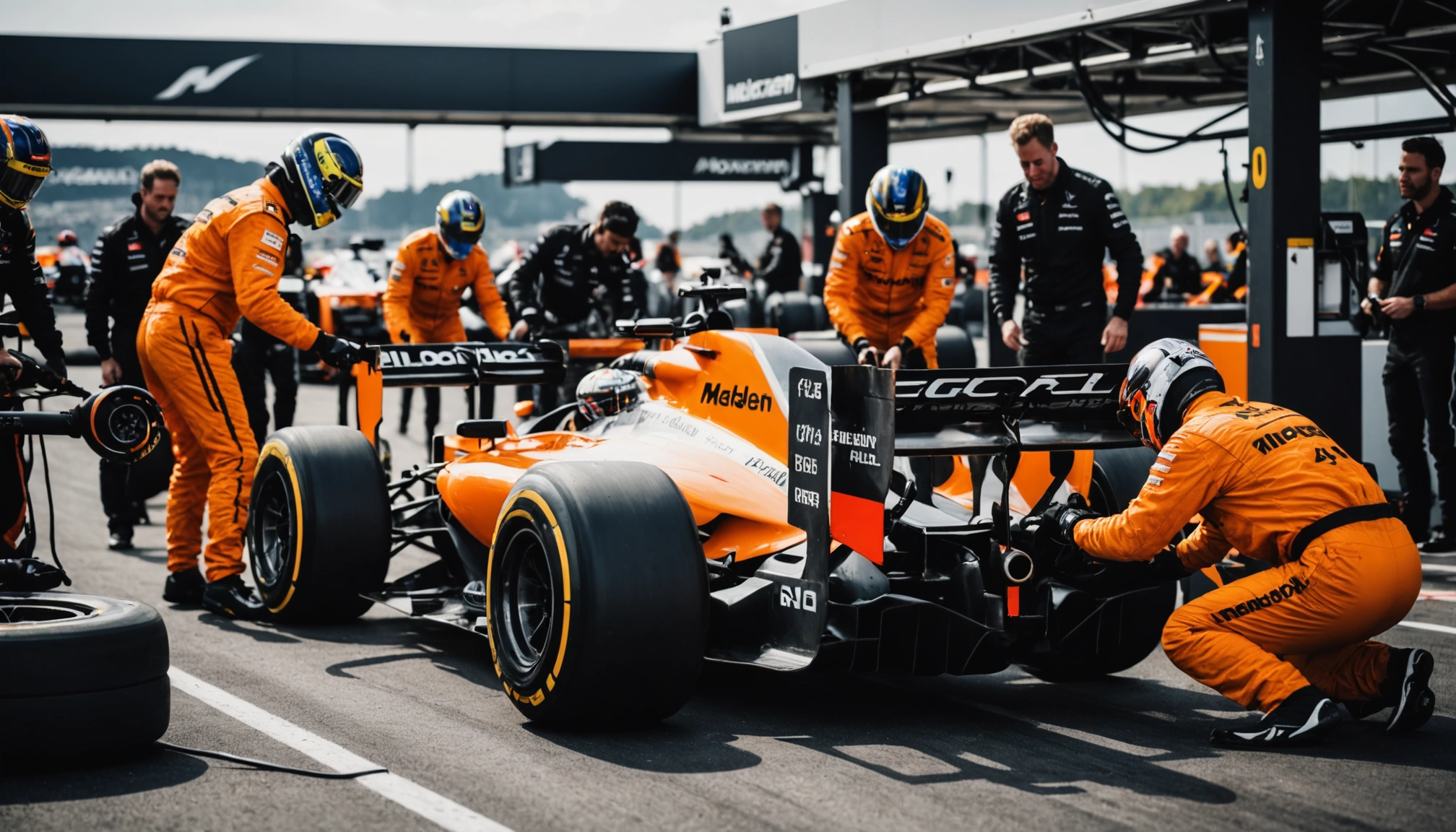New F1 Driver Cooling Kit To Combat Extreme Heat
Formula 1 will mandate a driver cooling kit from next season to protect drivers from extreme heat, following concerns raised at the 2023 Qatar Grand Prix.

By Editorial
Introduction To New F1 Cooling Measures
Formula 1 has announced a significant safety enhancement to tackle extreme heat conditions faced by drivers during races. Starting next season, the introduction of a mandatory driver cooling kit aims to lower cockpit temperatures when heat poses a risk to driver health and performance. This initiative comes after the 2023 Qatar Grand Prix, where soaring temperatures and humidity led to multiple drivers experiencing heat-related medical issues.
Why The New Cooling Kit Is Necessary
During last October’s Qatar Grand Prix, temperatures inside the cockpit reportedly reached dangerous levels. Several drivers, including Alpine's Esteban Ocon who admitted to vomiting inside his helmet, suffered from dehydration and heat exhaustion. The conditions were described by many as "beyond the limit," highlighting an urgent need for better heat management in the sport.
The extreme heat not only compromises driver safety but also affects concentration and race performance. Drivers are already subjected to intense physical and mental demands, and excessive heat adds a perilous element that the new cooling kit seeks to mitigate.
How The Driver Cooling Kit Works
The cooling system is a combination of advanced technologies designed to reduce cockpit temperatures effectively. Measures include:
- Blowing cool air directly onto drivers using heat exchangers integrated into the car’s design.
- Increasing cooling apertures around the cockpit area to improve airflow and heat dissipation.
- Potential integration of new materials or ventilation techniques to enhance thermal regulation.
These methods have undergone testing, with results deemed "encouraging" by the FIA and F1 officials, paving the way for the device's approval at the recent F1 Commission meeting.
Impact On Driver Safety And Race Performance
The introduction of the cooling kit is expected to boost driver safety substantially. By lowering cockpit temperatures, drivers can maintain better hydration and focus throughout the race, reducing the risk of heat-induced errors or medical emergencies.
Moreover, this innovation aligns with ongoing efforts to improve the overall conditions of F1 racing, especially as climate change influences weather patterns, making extreme heat events more frequent. The new regulations demonstrate F1’s commitment to adapting to modern challenges and safeguarding its athletes.
Further Rule Changes And Future Developments
Alongside the cooling kit, F1 is reviewing other rules to enhance race fairness and safety. For example, following a chaotic wet race in Sao Paulo, new rules will be introduced to manage grid closures when drivers are unable to start.
Another topic under discussion is the possibility of a sprint race for rookie drivers during post-season testing, although this is not expected before 2026. These changes reflect continuous efforts to refine the sport’s competitive and safety frameworks.
Case Studies And Local Relevance
Extreme heat is not unique to Qatar; many circuits, including those in the Middle East and southern Europe, regularly face soaring temperatures. For instance, Bahrain and Abu Dhabi often see race-day temperatures exceeding 35°C, which can severely affect driver performance and health.
British motorsport fans may recall similar challenges faced in past hot-weather races, underscoring the importance of this new cooling technology. This innovation ensures that British drivers and teams can compete safely under all conditions, contributing to the sport's global appeal and inclusivity.
How Fans Can Stay Updated On F1 Developments
For enthusiasts eager to follow the latest F1 news and innovations, sources like Sky Sports football watchalongs offer engaging coverage of sporting events beyond motorsport. Additionally, staying connected with platforms providing updates on various sports, including cycling and gymnastics, can enrich your sporting knowledge and excitement.
Should readers have questions or wish to provide feedback on F1 safety improvements, they can visit the Contact page of SportsScoop to reach out directly.
Conclusion And Takeaways
F1’s introduction of a mandatory driver cooling kit is a decisive step towards protecting drivers from the dangers of extreme heat. By addressing both health and performance concerns, this innovation marks a new chapter in racing safety. Fans and participants alike can look forward to safer, more competitive races as the sport adapts to evolving environmental challenges.
With further rule refinements on the horizon, including grid management and rookie race formats, Formula 1 continues to evolve dynamically, balancing tradition with modern demands. For comprehensive insights into related sports stories, such as Geraint Thomas’s cycling farewell, SportsScoop remains a premier source for UK sports coverage.
Related topics
Editorial
Sports expert at SportsScoop
Specialist in sports analysis and journalism
Related articles
Want to read more?
Explore our comprehensive collection of sports articles and analysis, or contact us for more information.



